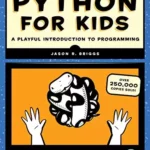
When AI researcher Melanie Mitchell published Artificial Intelligence: A Guide for Thinking Humans in 2019, she set out to clarify AI’s impact. A few years later, ChatGPT set off a new AI boom—with a side effect that caught her off guard. An AI-generated imitation of her book appeared on Amazon, in an apparent scheme to profit off her work. It looks like another example of the ecommerce giant’s ongoing problem with a glut of low-quality AI-generated ebooks.
Mitchell learned that searching Amazon for her book surfaced not only her own tome but also another ebook with the same title, published last September. It was only 45 pages long and it parroted Mitchell’s ideas in halting, awkward language. The listed author, “Shumaila Majid,” had no bio, headshot, or internet presence, but clicking on that name brought up dozens of similar books summarizing recently published titles.
Mitchell guessed the knock-off ebook was AI-generated, and her hunch appears to be correct. WIRED asked deepfake-detection startup Reality Defender to analyze the ersatz version of Artificial Intelligence: A Guide for Thinking Humans, and its software declared the book 99 percent likely AI-generated. “It made me mad,” says Mitchell, a professor at the Santa Fe Institute. “It’s just horrifying how people are getting suckered into buying these books.”
Amazon took down the imitation of Mitchell’s book after WIRED contacted the company. “While we allow AI-generated content, we don’t allow AI-generated content that violates our Kindle Direct Publishing content guidelines, including content that creates a disappointing customer experience,” Amazon spokesperson Ashley Vanicek says.
But Mitchell is far from the only AI researcher apparently targeted using the same technology they work on. Pioneering computer scientist Fei-Fei Li’s new memoir The Worlds I See: Curiosity, Exploration, and Discovery in the Age of AI has over a dozen different summaries come up when you search for the book on Amazon.
Unlike the takeoff of Mitchell’s book, the summaries of Li’s announce themselves as such. One, forthrightly titled Summary and Analysis of The Worlds I See, has a product description that begins: “DISCLAIMER!! THIS IS NOT A BOOK BY FEI-FEI LI, NOR IS IT AFFILIATED WITH THEM.IT IS AN INDEPENDENT PUBLICATION THAT SUMMARIZES FEI-FEI LI BOOK IN DETAILS.IT IS A SUMMARY.” Yet these books, too, appear to be AI-generated and to add little value for readers. Reality Defender analyzed a sample of the Summary and Analysis book and found it was also likely AI-generated. “A complete and total rewriting of the text. Like, someone queried an LLM to rewrite the text, not summarize it,” Reality Defender head of marketing Scott Steinhardt says. “It’s like a KidzBop version of the real thing.” Reached for comment over email, Li distilled her reaction into a single emoji: 🤯.
Summary Execution
Sleazy book summaries have been a long-running problem on Amazon. In 2019, The Wall Street Journal found that many used deliberately confusing cover art and text, irking writers including entrepreneur Tim Ferriss. “We, along with some of the publishers, have been trying to get these taken down for some time now,” says Authors Guild CEO Mary Rasenberger. The rise of generative AI has supercharged the spammy summary industry. “It is the first market we expected to see inundated by AI,” Rasenberger says. She says these schemes fit the strengths of large language models, which are passable at producing summaries of work they’re fed, and can do it fast. The fruits of this rapid-fire generation are now common in searches for popular nonfiction titles on Amazon.
AI-generated summaries sold as ebooks have been “dramatically increasing in number, says publishing industry expert Jane Friedman—who was herself the target of a different AI-generated book scheme. That’s despite Amazon in September limiting authors to uploading a maximum of three books to its store each day. “It’s common right now for a nonfiction author to celebrate the launch of their book, then within a few days discover one of these summaries for sale.”











